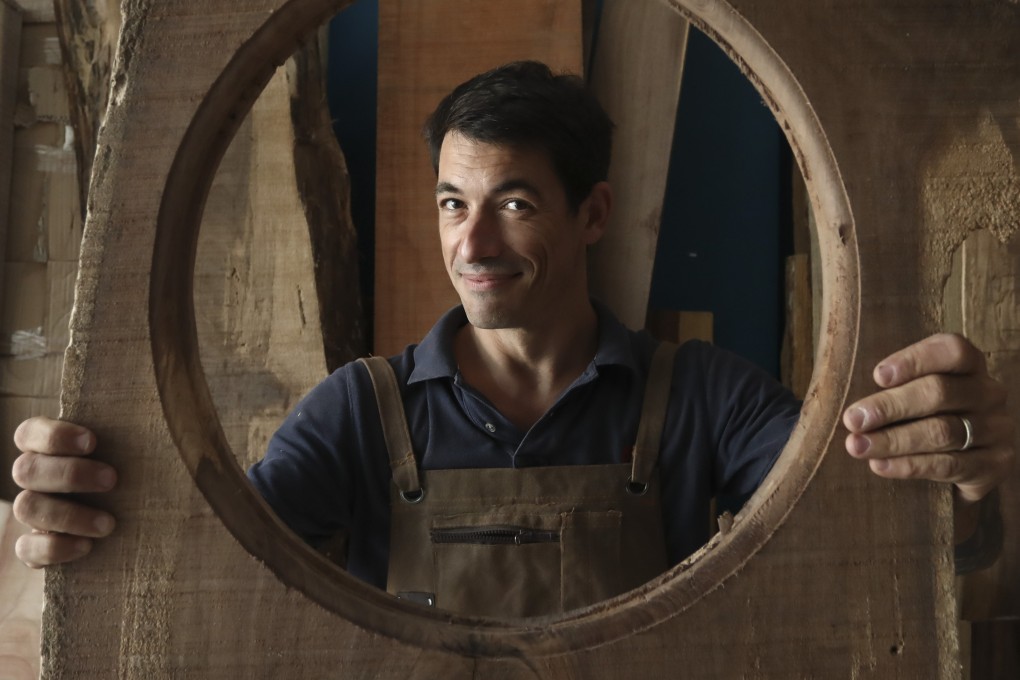Profile | He quit the 9 to 5 and followed his dream: carpenter in Hong Kong with a workshop two minutes from the beach
- Franck Vidal had loved doing woodwork since childhood, and at the age of 40 trusted himself enough to quit a corporate job and become a self-employed carpenter
- With a workshop a stone’s throw from the beach, two daughters who love helping out and a variety of jobs, he feels a lucky man, he tells Ed Peters

Crafty kid: You could trace the point when my life really got started to around my ninth birthday, after my uncle asked me to help him restore a house near the small village where we lived, southeast of Lyons, in France. It was built in 1840, with enough room to accommodate a horse and cart overnight, but when he began it had fallen into ruins and wasn’t much more than four rickety walls.
At first I was just fetching and carrying, but then I began to get really enthusiastic. My uncle was so passionate – he would only ever use traditional building methods and tools, no matter how long it took, and always employed authentic materials. I think I inherited his utter devotion to his craft. Thirty-something years later, he’s still looking forward to when it’s finished.
Tickling the ivories: I was rubbish at school. I’m a hyperactive person, so sitting still for eight hours a day listening to someone talk was never going to work, but I did learn to play the piano – I’ve even got one in my workshop now so I can bash out a tune to help me relax during the day. I also became quite good at football and was thinking of turning professional but I knew that I would never be skilful enough to get into the premier division.
University was never going to be an option, so at the age of 20 I started working on a construction site. And although what I enjoyed doing most was working with my hands, step by step I allowed myself to become embraced by the corporate world, which is what my parents wanted, and became a salesman.
Island escape: Like so many other people, I came to Hong Kong for a four-week holiday, and that was in June 2008. It was the standard timeline – sleep on a friend’s couch, find a job, get a room in a shared flat in Causeway Bay. I fell in love with the energy of the city, but after a time I had to get away from the more extreme environs of the concrete jungle and move out of the city, so I gravitated towards Lantau.